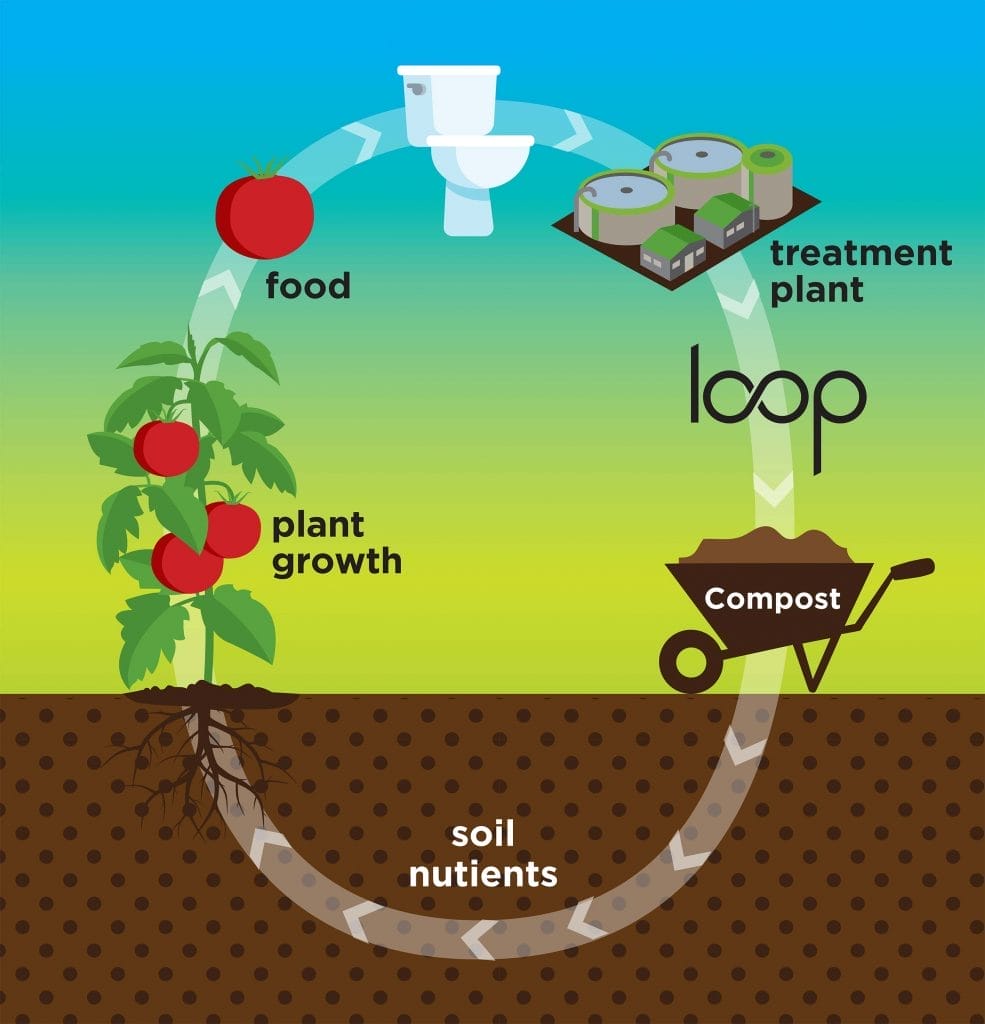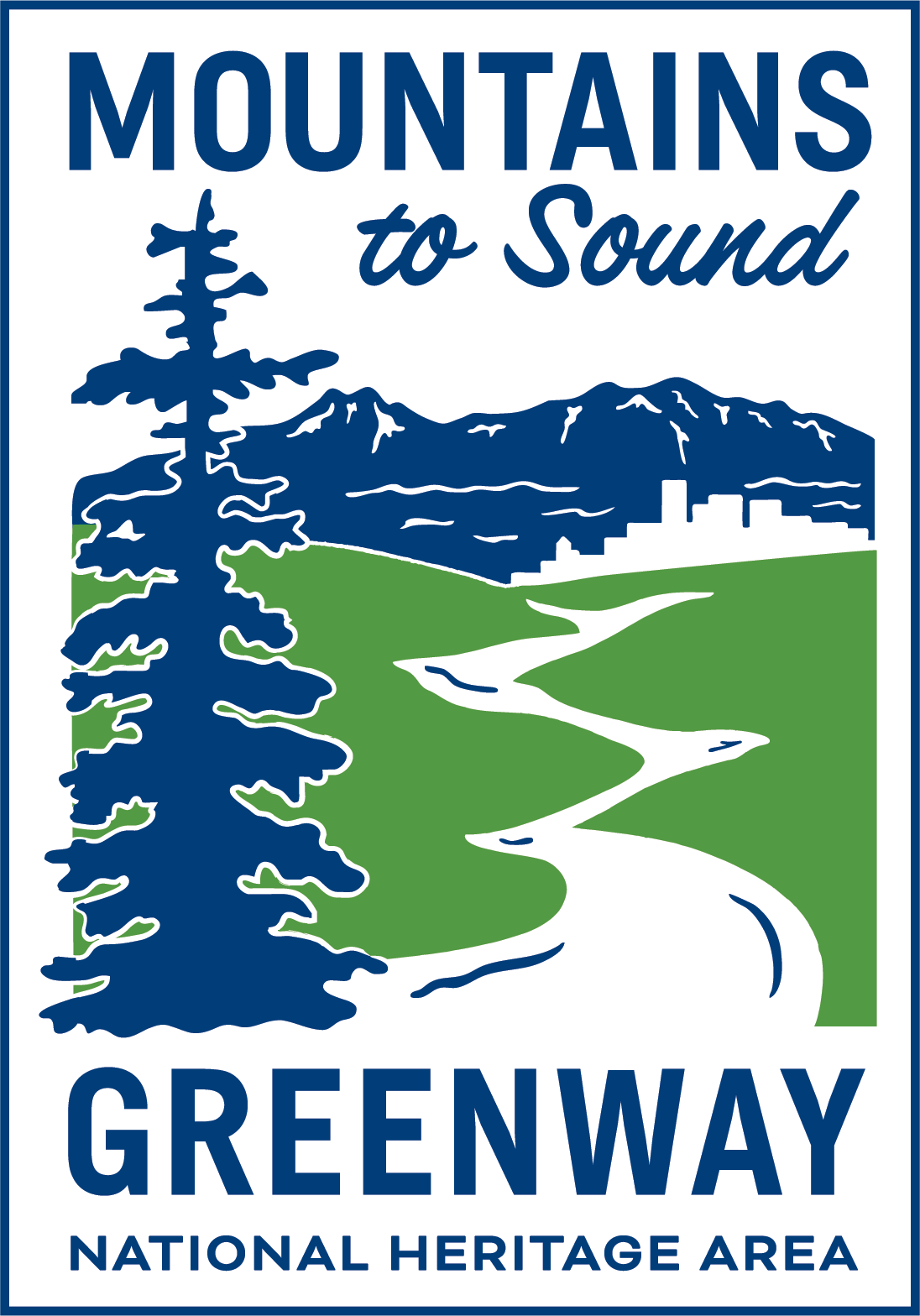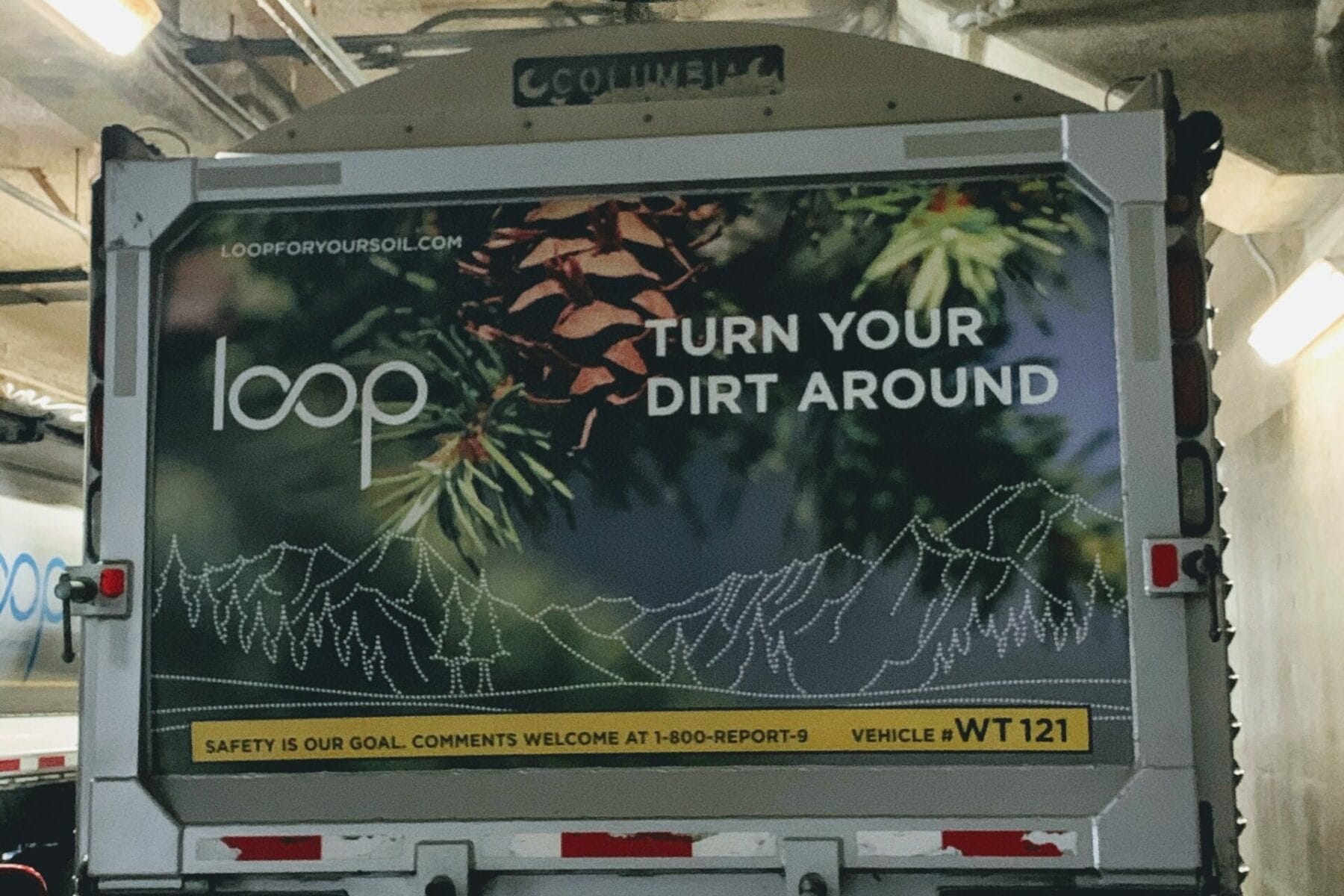How the Greenway is Part of the “Poop Loop”
Being environmentally sustainable and responsible can come in many forms, from using reusable straws to going zero waste. If you live in King County, you’ve been helping out the environment, whether you realize it or not: your waste (biosolids) has been turned into something called Loop Soil. Loop is “a fertilizer replacement produced by cleaning, recycling, and transforming 100% of the poop and food that goes down toilets and drains.”

Be Part of “the Poop Loop”
So, what exactly are “biosolids”? They’re organic matter that have been recycled from sewage. The process of making Loop begins when you flush your toilet. Everything goes to the wastewater treatment plant and into a giant tank where gravity separates the liquids from the solids. The liquids are then cleaned and disinfected to be reused elsewhere, such as irrigation. Meanwhile, in a 98°F digester (much like our body temperatures), the solids and harmful organisms are broken down by microorganisms and naturally occurring bacteria. The gases that are produced by this process, known as biogas, can then be used as both fuel and to generate electricity. The rest of the broken-down material can be used as a zero-waste alternative for fertilizer.
The Greenway and Poop Loop
So how is this relevant to our magnificent Greenway and Greenway Trust? In 1995, our founder, Jim Ellis, entered into an agreement with King County Wastewater Treatment Division, Department of Natural Resources, University of Washington, and Weyerhaeuser Company with the purpose of encouraging the use and education of biosolids within the Greenway. There were three goals: expanding forestlands, re-greening old logging roads with biosolids and compost, and educating youth and the public on how biosolids recycling works and how it benefits our environment.
As part of our Compost Re-greening Program, we purchased some GroCo compost (which uses biosolids!) to be used in our restoration projects with youth and volunteers for a pilot period of six years. We decided to utilize biosolids and compost to restore and re-green several unused logging roads that were deemed unsafe for travel. Because of the visibility of these roads, sometimes thought of as “scars,” this program was one of the most popular amongst volunteers and the community.

Our Environmental Education Program has continued to teach that biosolids recycling is an ecological necessity, the safety behind it, and the benefits of sustainable commercial forestry.
Why Poop Loop?
From a restoration standpoint, biosolids recycling has beneficial long-term effects on the environment. It acts like a sponge, helping the soil retain rainfall and nutrients as opposed to running off into the Sound, rivers, and streams, keeping them cleaner and healthier for salmon and other wildlife. But its benefits extend beyond the natural environment and into our urban society to be more sustainable as a society through recycling biosolids.
We are big fans of the work that Loop does and have used GroCo at our nursery throughout the years.





